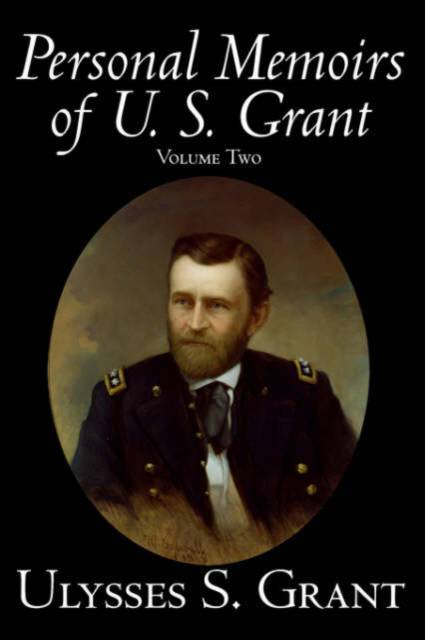
- Retrait gratuit dans votre magasin Club
- 7.000.000 titres dans notre catalogue
- Payer en toute sécurité
- Toujours un magasin près de chez vous
- Retrait gratuit dans votre magasin Club
- 7.000.0000 titres dans notre catalogue
- Payer en toute sécurité
- Toujours un magasin près de chez vous
Personal Memoirs of U. S. Grant, Volume Two, History, Biography
Ulysses S GrantDescription
The memoir has been highly regarded by the public, military historians, and literary critics. Grant portrayed himself in the persona of the honorable Western hero, whose strength lies in his honesty and straightforwardness. He candidly depicted his battles against both the Confederates and internal army foes. Twain called the Memoirs a "literary masterpiece." Given over a century of favorable literary analysis, reviewer Mark Perry states that the Memoirs are "the most significant work" of American non-fiction. There must be many errors of omission in this work, because the subject is too large to be treated of in two volumes in such way as to do justice to all the officers and men engaged. There were thousands of instances, during the rebellion, of individual, company, regimental and brigade deeds of heroism which deserve special mention and are not here alluded to. The troops engaged in them will have to look to the detailed reports of their individual commanders for the full history of those deeds. Mark Twain wrote: I had been comparing the memoirs with Caesar's Commentaries... I was able to say in all sincerity, that the same high merits distinguished both books-clarity of statement, directness, simplicity, unpretentiousness, manifest truthfulness, fairness and justice toward friend and foe alike, soldierly candor and frankness, and soldierly avoidance of flowery speech. I placed the two books side by side upon the same high level, and I still think that they belonged there.
Spécifications
Parties prenantes
- Auteur(s) :
- Editeur:
Contenu
- Nombre de pages :
- 352
- Langue:
- Anglais
Caractéristiques
- EAN:
- 9781598181142
- Date de parution :
- 01-06-06
- Format:
- Livre relié
- Format numérique:
- Genaaid
- Dimensions :
- 152 mm x 229 mm
- Poids :
- 653 g

Les avis
Nous publions uniquement les avis qui respectent les conditions requises. Consultez nos conditions pour les avis.






